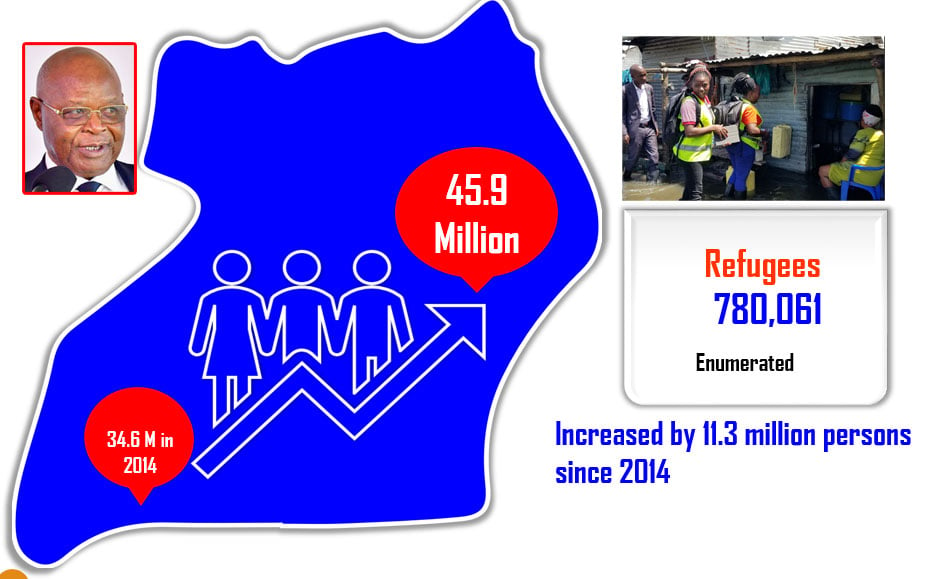Prime
At 58, Uganda is a nation in circles

Author: Joseph Ochieno.
What you need to know:
- He did not only lament the personal merit (parties were banned) elections that had taken place in Uganda the year before (1996) which was 10 years since the ban on political parties, but also that leading Western nations (democracies) were both silent and complicit in the entrenchment of NRA-NRM dictatorship.
I was reviewing the Commonwealth Parliamentary Conference reports held in Kuala Lumpur, Malaysia, in September 1971 when my interest deepened in the topic of “Commonwealth and problems of world security,” thanks to Kenya’s I.E. Omolo-Okero.
At the outset he reminded delegates of four points that arose from the declaration of the heads of government summit that had taken place earlier in January that included (1) belief that international peace and order was of import for the security and prosperity of mankind and that the UN ought to influence peace in order to mitigate root causes of conflicts between nations.
That they (2) believed in liberty of the individual, equal rights for all regardless of race, creed, political belief and, inalienable rights to participate by means of free and democratic political processes in framing their destiny; that they (3) recognised racial prejudices as dangerous sickness that was threatening the health and development of humanity and, finally (4) they believed in international cooperation as an essential tool in removing causes of war and to promote tolerance, combat injustice and secure development.
Sweet words. Ironically, he argued, the then Boer government of South Africa had elevated racial discrimination to a new political philosophy namely; apartheid. That apartheid regime was powerful because of its enormous trade and support it got from Western powers mainly Britain, Germany, Japan, Canada and of course master US. On Zimbabwe he said of the ‘rebellious’ Ian Smith’s regime:
“He is one of the rebels in the happy position of knowing before he rebelled that no force would be used to deal with him”; thanks to the hypocrisy of the British government; Africans in Zimbabwe were effectively under apartheid, like their brethren in South Africa.
Schemed almost to perfection, I sought to return the book to its corner only to sit it next to Harold Wilson’s biography, authored by historian Ben Pimlott. It was then that I recalled a text in Dr Milton Obote’s invitation letter to a Lusaka, Zambia, meeting of UPC leaders in 1997.
He did not only lament the personal merit (parties were banned) elections that had taken place in Uganda the year before (1996) which was 10 years since the ban on political parties, but also that leading Western nations (democracies) were both silent and complicit in the entrenchment of NRA-NRM dictatorship. Our American friends had written a memorandum in February 1996 declaring that those elections were an “important stepping stone in a long-term democratisation process”.
Up to that time, only UPC was the odd man out in the regime. The strategy was as Obote suggested, “first killing a popular nationalist and internationalist party (UPC) so as to have in the arena, at a later stage, parties which are controlled from abroad and whose leaders become nyampalas in Uganda of forces abroad”.
While I am aware that these pages sometimes do not make much sense nor grant free interest for leisure reading, one thing is for certain; the more things change without our ownership and input, the more they remain the same.
The Singapore parliamentary conference did not have a delegation from Uganda because her elected government had been forcefully overthrown with tacit and active support of the same forces that were in charge of events in Southern Africa. The ‘democratisation’ process in Uganda that never settles was and remains nothing but froth; the truth is sadly, a stunted labour.
While a few pocketed and well-fed citizens marched on Friday, October 9, claiming independence, it is not yet uhuru. If only genuine UPC members would wake up from their ‘sick-beds’ and be (joined by selfless but futurist Ugandans) to demand that no founding parents of this nation 58 years ago deserve their nakedness exposed for fodder, better would be possible.
The writer is former columnist with New African Magazine and former UPC spokesperson [email protected]




